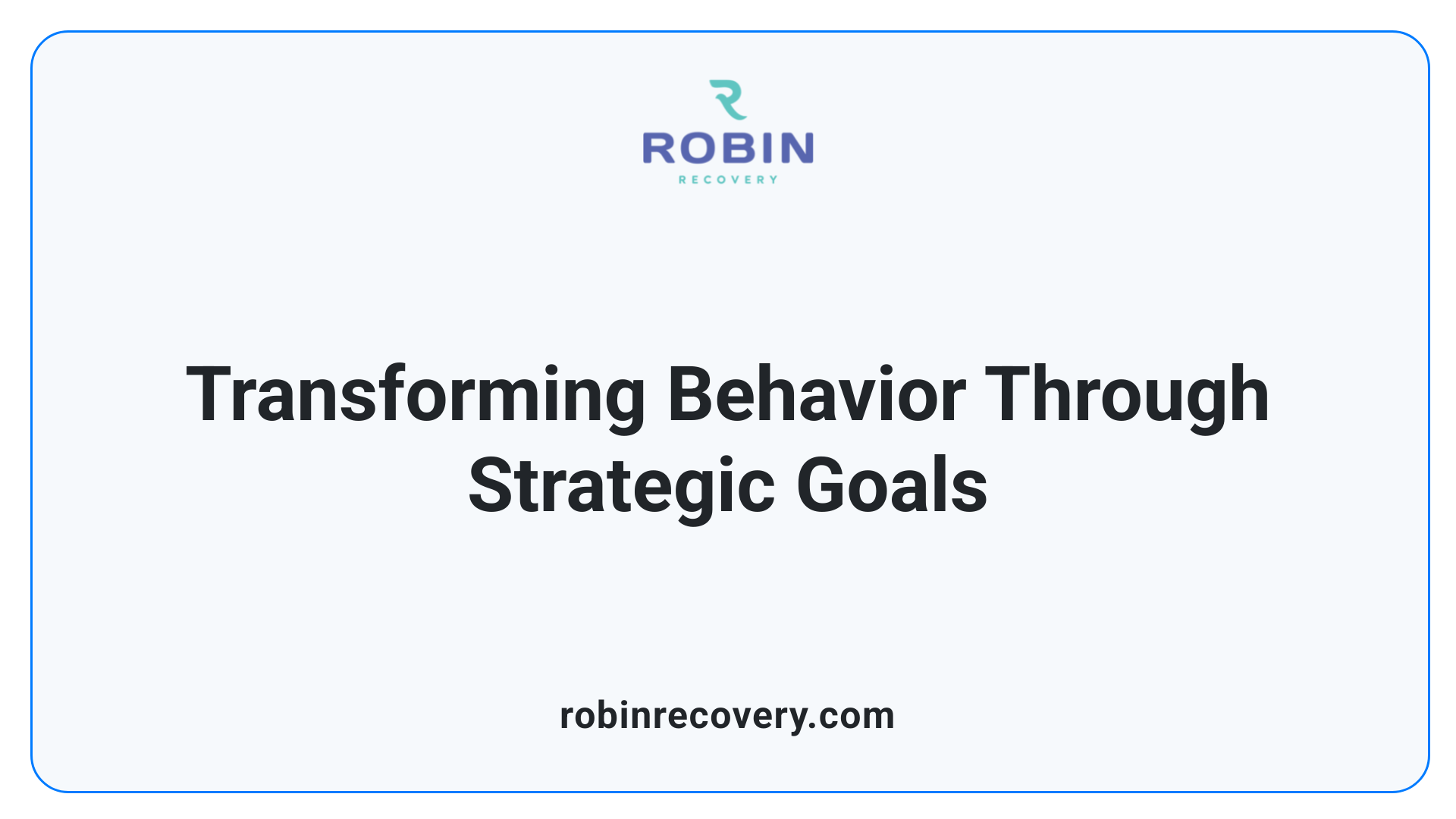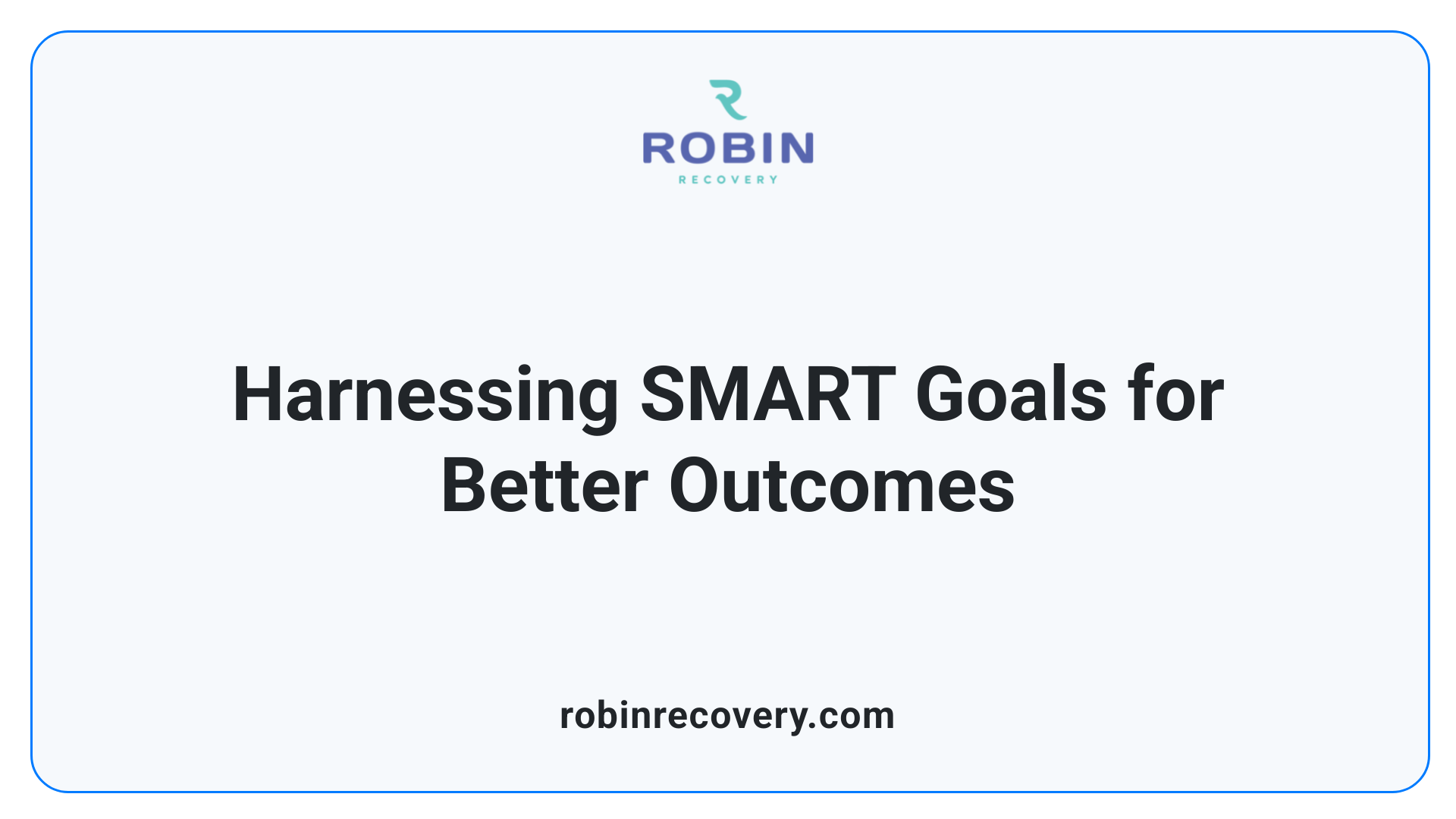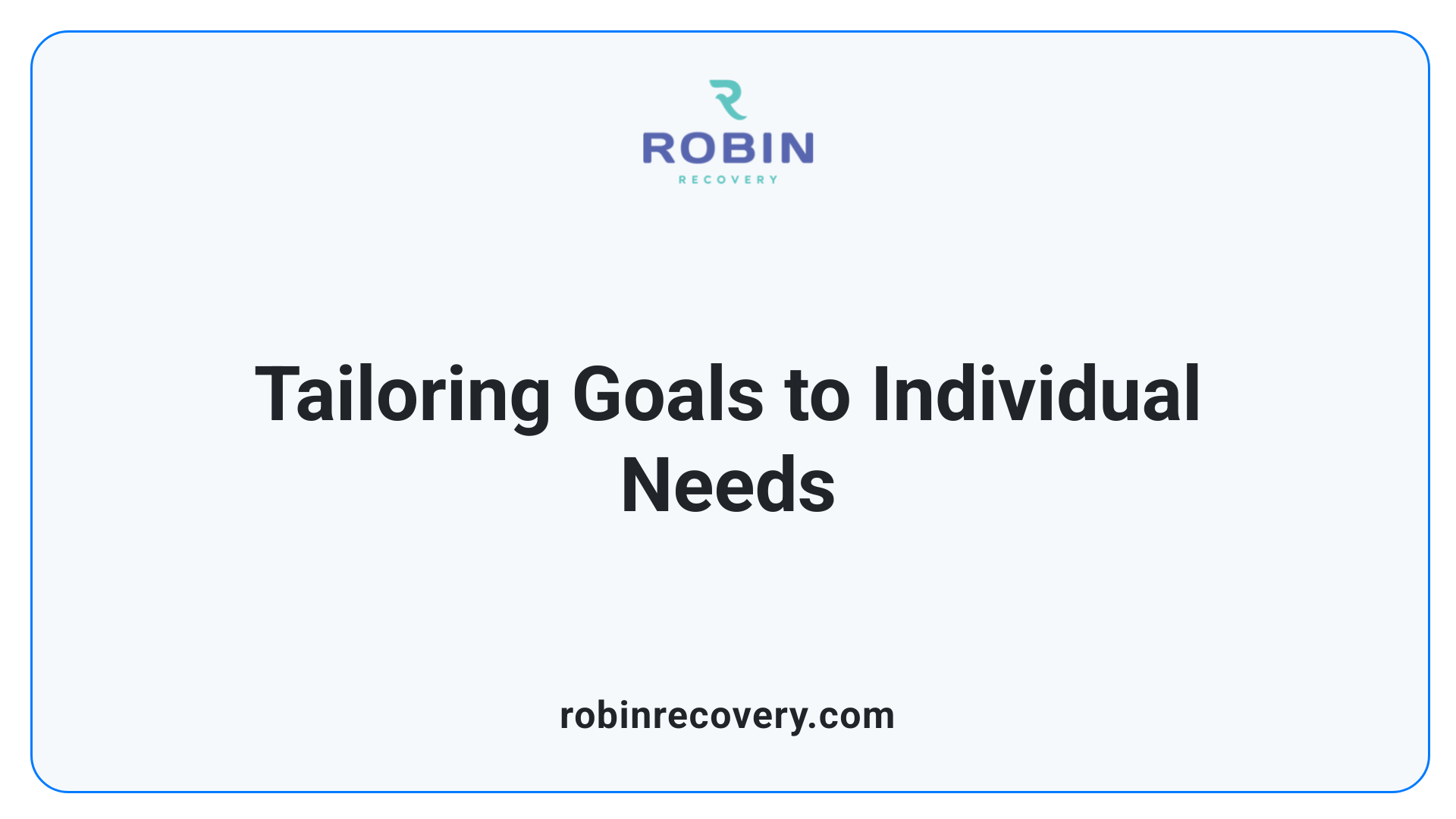The Importance of Goal-Setting in Cognitive-Behavioral Therapy

Exploring the Role of Goal Setting in CBT
Goal setting is a foundational element of Cognitive-Behavioral Therapy (CBT), offering a roadmap for therapy and enabling individuals to track progress and measure success. In light of its significance, this narrative delves into the intricacies of goal setting within CBT, examining its methodologies and impact on therapeutic results, especially for common mental health issues such as anxiety and depression.
The Significance of Goal Setting in CBT

What is the importance of setting goals in cognitive-behavioral therapy (CBT)?
Goal setting is essential in cognitive-behavioral therapy (CBT) as it provides direction, enhances motivation, and boosts confidence for individuals facing emotional and behavioral challenges.
The systematic approach to goal setting allows individuals to break down overwhelming issues into manageable tasks, making the therapeutic process more structured and effective.
Moreover, the SMART criteria—ensuring that goals are Specific, Measurable, Achievable, Relevant, and Timely—play a critical role in establishing effective objectives. This structure enhances clarity in what patients are aiming to achieve, fostering improved engagement in their therapy journey.
How does goal setting enhance motivation and confidence?
Having clear, personalized goals boosts motivation as individuals can track their progress and celebrate small victories, which reinforces their sense of achievement. This positive reinforcement not only builds self-efficacy but also provides a motivation boost that helps individuals persist in their efforts.
Collaborative goal-setting enhances the therapeutic alliance, making clients feel more involved and valued in their care, which further increases their commitment to the process.
Overview of the four-step goal-setting process in CBT
A practical four-step method for effective goal setting in CBT includes:
- Identifying the Goal: Define what the individual wants to accomplish.
- Assessing the Starting Point: Understand where the individual currently stands concerning the goal.
- Outlining Steps to Achieve the Goal: Break down the goal into actionable steps.
- Initiating the Process: Begin working towards the goal through these outlined steps.
This structured approach, aligned with SMART criteria, ensures that goals are not only tailored to the client's unique situation but also facilitate emotional and behavioral improvement.
Behavioral Changes Through Effective Goal Setting

How does goal setting contribute to behavior modification?
Goal setting significantly contributes to behavior modification by providing a structured framework that helps individuals outline their desired outcomes and the steps needed to achieve them. By establishing SMART (Specific, Measurable, Achievable, Relevant, and Time-bound) goals, individuals can maintain focus and motivation throughout the change process.
Breaking down goals into smaller, manageable steps prevents feelings of overwhelm and facilitates progress tracking. For example, instead of aiming to ‘get fit,’ a more specific goal could be to ‘exercise for 30 minutes every day.’ This clarity allows individuals to recognize and celebrate small achievements, reinforcing their motivation.
Additionally, understanding the internal and external factors that influence motivation, such as social support and personal strengths, enhances the effectiveness of the goal-setting process. This approach not only aids in achieving immediate objectives but also fosters long-term behavior change and personal growth, leading to improved emotional health and resilience. When clients see clear indicators of progress, their self-efficacy increases, leading to sustained commitment to their goals.
Preventing feelings of overwhelm through manageable steps
Developing a clear breakdown of larger goals into smaller, more achievable steps is crucial to avoid feelings of overwhelm. This strategy helps maintain engagement and prevents the discouragement that can arise when faced with daunting objectives.
For instance, in CBT, clients might formulate a long-term goal of reducing anxiety by starting with short sessions of exposure to anxiety-inducing situations. By addressing fears in incremental stages, clients feel empowered and in control, reinforcing their motivation.
Role of motivation and self-efficacy in behavior change
Motivation and self-efficacy are central to successful behavior change in the context of goal setting. When individuals set goals that resonate with their values, they are more likely to stay committed.
Furthermore, as they achieve smaller milestones, their sense of competence and self-efficacy grows, encouraging them to tackle more significant challenges. Therapists often employ techniques such as motivational interviewing to enhance intrinsic motivation, addressing doubts and building a supportive environment to promote goal achievement. Collaborative goal-setting with therapists strengthens the therapeutic alliance, creating a sense of partnership that fosters a more profound commitment to personal progress.
Applying the SMART Criteria in CBT

What are SMART goals, and how are they applied in CBT?
SMART goals in Cognitive Behavioral Therapy (CBT) serve to enhance the clarity and effectiveness of treatment objectives. Each goal is linked to five essential components:
- Specific - Clearly defined target helps in focusing treatment efforts.
- Measurable - Progress can be tracked objectively, making it easier to celebrate achievements.
- Achievable - Goals should be attainable, preventing discouragement from overly ambitious targets.
- Relevant - Goals need to align with the individual’s personal values and situations.
- Time-bound - Setting a deadline fosters a sense of urgency and commitment.
Research shows that a significant percentage of patients feel their treatments lack initial clarity in goal setting. This lack correlates with lower therapeutic alliance quality and higher symptom levels. Clearly established and regularly revisited goals enhance clarity, reduce confusion, and ultimately improve motivation.
How does goal clarity lead to therapeutic success?
The connection between goal clarity and therapeutic success is profound. When goals are explicitly defined at the onset of therapy, clients benefit from structured sessions. This enhances their understanding of treatment direction, fostering an empowering environment where they can engage effectively with the therapeutic process. Studies indicate that clear articulation of goals not only facilitates better communication between the therapist and the client but also nurtures a stronger therapeutic alliance, which is crucial for successful outcomes.
How do SMART goals enhance patient motivation and reduce distress?
By ensuring that goals are specific and realistic, the SMART framework helps mitigate anxiety related to expectations. This thoughtful approach boosts self-efficacy and promotes a sense of accomplishment, as clients can celebrate incremental successes along their journey. A focus on manageable achievements allows clients to view therapy as a collaborative effort, ultimately increasing their motivation to participate actively in their treatment and reducing emotional distress. In sum, SMART goals are a pivotal element in CBT, guiding clients toward meaningful change with enhanced support and structure.
Real-World Examples of CBT Goals for Anxiety
What are some examples of CBT goals for anxiety?
When it comes to cognitive-behavioral therapy (CBT) for anxiety, establishing effective goals is crucial. Here are several examples of common CBT goals:
- Reduce Anxiety Attacks: A measurable goal might be to decrease anxiety attacks from five to two per week within three months while engaging in therapeutic support.
- Develop Coping Skills: Working on specific strategies to challenge negative thoughts can support emotional regulation. An example could be practicing cognitive restructuring techniques to counteract anxious thinking.
- Identify Triggers: A goal may involve recognizing and documenting situations that trigger anxiety to prepare appropriate coping mechanisms. This might include keeping a diary to track feelings and thoughts leading up to an anxiety episode.
- Enhance Self-Awareness: Clients can aim to improve their self-awareness by noting physical and emotional responses to anxiety-inducing situations.
- Strengthen Interpersonal Relationships: Fostering connection through effective communication skills can be another goal, which might involve practicing assertiveness in social settings.
The role of goals in improving coping skills
Goals in CBT not only keep clients focused but also enhance their coping skills. By clarifying what they wish to achieve, such as managing anxiety in social settings, clients can break down their objectives into manageable tasks. For instance, they might set a goal to attend a social event and practice deep-breathing techniques to manage anxiety, thereby reinforcing their progress.
Celebrating small successes in therapy
Recognizing and celebrating small victories throughout therapy can reinforce motivation. Each achievement, no matter how minor, contributes to the building of self-efficacy and the commitment to further goals. This practice ensures that clients maintain a positive outlook and stay engaged in their therapy journey, which is particularly important for sustaining momentum in overcoming anxiety.
Integration of SMART Goals in Therapy
Usage of Start Goals Versus Stop Goals
In Cognitive Behavioral Therapy (CBT), the distinction between start goals and stop goals is vital. Start goals focus on what individuals aim to achieve, such as increasing physical activity or developing better coping strategies. In contrast, stop goals focus on eliminating undesired behaviors, like reducing anxiety or ceasing unhealthy habits. For example, a start goal might be setting a plan to walk for 30 minutes every day, promoting a healthier lifestyle rather than simply aiming to stop feeling anxious.
Tools to Aid Goal Formulation
Several tools enhance the goal-setting process in CBT. One useful resource is the Therapy Goals worksheet, which helps clients clearly articulate their goals. This worksheet prompts them to use the SMART criteria, ensuring that their goals are Specific, Measurable, Achievable, Relevant, and Time-bound. Additionally, the Goal Breakdown worksheet enables clients to dismantle significant goals into smaller, more manageable tasks, reducing feelings of overwhelm and enhancing clarity.
Breaking Down Goals into Manageable Tasks
Breaking goals into smaller tasks is essential for effective progress. This strategy not only makes goals feel more achievable but also empowers clients to track their advancements incrementally. Regularly updating and monitoring these small steps fosters momentum and keeps clients engaged in the therapeutic process. For instance, if a client has a broader goal of improving their emotional resilience, they might break that down into weekly activities such as practicing mindfulness for ten minutes each day or journaling their feelings.
The integration of SMART goals within therapy provides a structured framework for clients to pursue meaningful change, enhancing their motivation and sense of purpose as they progress through their treatment.
Understanding Individual Variability in Goal Setting

Factors Influencing Goal Setting Effectiveness
The effectiveness of goal setting in cognitive-behavioral therapy (CBT) can vary based on individual factors such as distress levels and personality traits. For instance, clients experiencing higher anxiety may struggle with goal commitment, making it vital for therapists to assess their readiness and tailor goals accordingly.
Cultural and Personal Impact on Goals
Cultural backgrounds significantly shape how individuals view goal setting. In some cultures, agency in defining personal goals may differ, influencing both the formulation and prioritization of these targets. Understanding these cultural nuances allows therapists to foster a more inclusive goal-setting approach.
Flexibility in Adjusting Goals
Flexibility is crucial when setting goals. Clients’ circumstances and emotional states can change, necessitating regular assessments and adjustments of goals to keep them relevant and achievable. This adaptability not only enhances motivation but also supports clients in maintaining progress throughout therapy.
Collaborative Goal-Setting: Enhancing Therapy and Recovery

Collaborative goal-setting between client and therapist
In cognitive-behavioral therapy (CBT), collaborative goal-setting is fundamental. This process involves active participation from both the therapist and the client. Together, they outline specific treatment goals that reflect the client's unique experiences, strengths, and values. Such an approach ensures that the goals resonate personally with the client, making them more meaningful and motivating.
Impact on therapeutic alliance and treatment engagement
When clients are involved in setting their goals, it fosters a stronger therapeutic alliance. A clear understanding of mutual objectives enhances communication and trust between the therapist and the client, leading to better engagement in the therapeutic process. According to studies, agreed-upon goals are linked to improved outcomes, as clients feel a greater sense of ownership and responsibility for their progress.
Benefits for personal recovery
Collaborative goal-setting not only supports individuals in managing their symptoms but also promotes personal recovery. By breaking down larger concerns into smaller, manageable goals, clients experience a sense of accomplishment, thereby increasing their confidence and motivation. Celebrating small victories reinforces their self-efficacy, further motivating them to pursue positive changes in their lives.
The Psychological Principles Behind Goal-Setting in CBT
Importance of Aligning Goals with Personal Values
When setting goals in cognitive behavioral therapy, aligning these objectives with personal values is essential. This alignment enhances motivation as individuals are more likely to commit to goals that resonate with their core beliefs and desires. For example, a client who values health may set fitness goals that lead to improved well-being, fostering a sense of purpose within their therapy.
Role of Motivation and Self-Efficacy
Motivation plays a crucial role in goal achievement. A positive mindset increases self-efficacy—the belief in one’s ability to succeed. When goals are broken down into manageable steps and celebrated along the way, clients experience boosts in confidence, encouraging continued effort and engagement in the therapeutic process.
Techniques for Tracking Progress
Tracking progress is integral to maintaining motivation. Techniques like journaling or using digital apps allow clients to monitor their achievements. Regularly reviewing goals ensures they remain relevant and achievable, facilitating necessary adjustments that keep momentum going. This structured monitoring empowers individuals to maintain focus, adjusting their strategies and celebrating successes as they navigate their therapeutic journey.
Empowering Change Through Goal-Setting in CBT
The profound impact of goal setting in cognitive-behavioral therapy underscores its essential role in crafting effective therapeutic journeys. By strategically incorporating SMART goals, both clients and therapists can navigate mental health challenges with clarity and purpose, leading to sustainable personal growth and improved mental health outcomes. Emphasizing collaboration and personalization in goal setting assures that therapy remains aligned with individual client needs, thereby fostering a more successful and empowering therapy experience.
References
- How CBT Uses Goal Setting - Manhattan Center for CBT
- Working with goals in therapy. - APA PsycNet
- Starting CBT: Clarifying Problems and Developing Goals
- Goal setting with young people for anxiety and depression
- Goal setting as a cognitive behavioural technique
- Cognitive Behavioral Therapy (CBT): Tasks & Beliefs - Verywell Mind
- Setting and Achieving Goals with Cognitive Behavior Therapy
